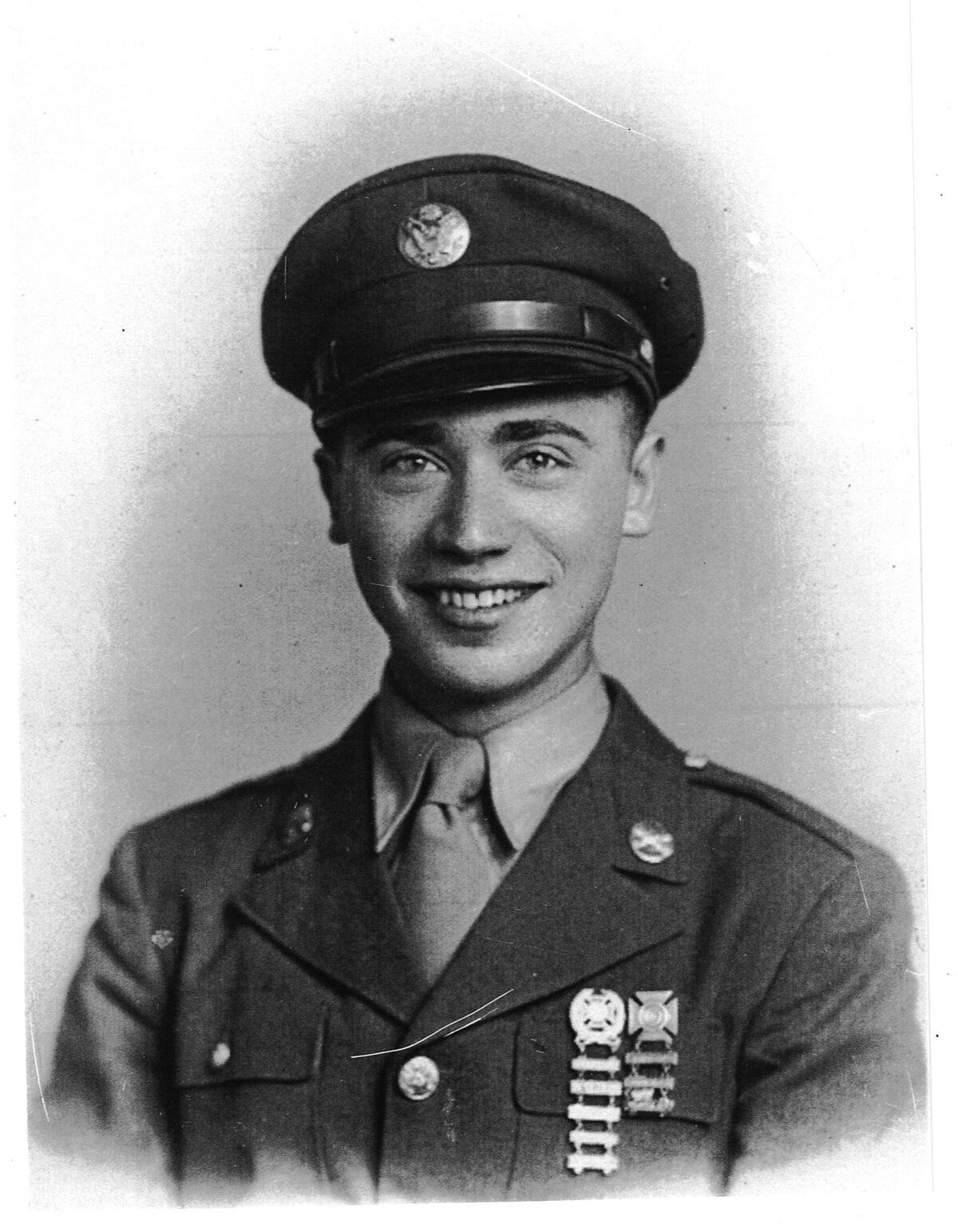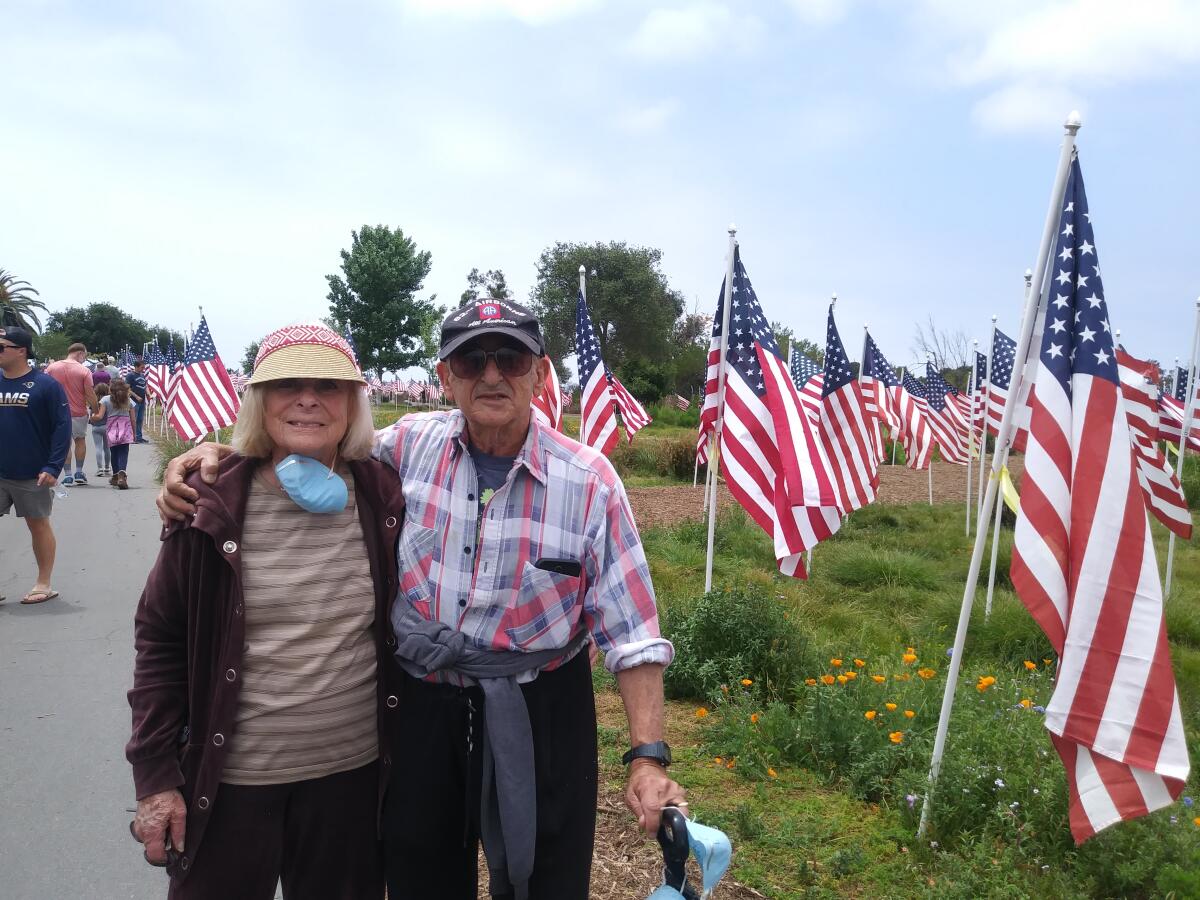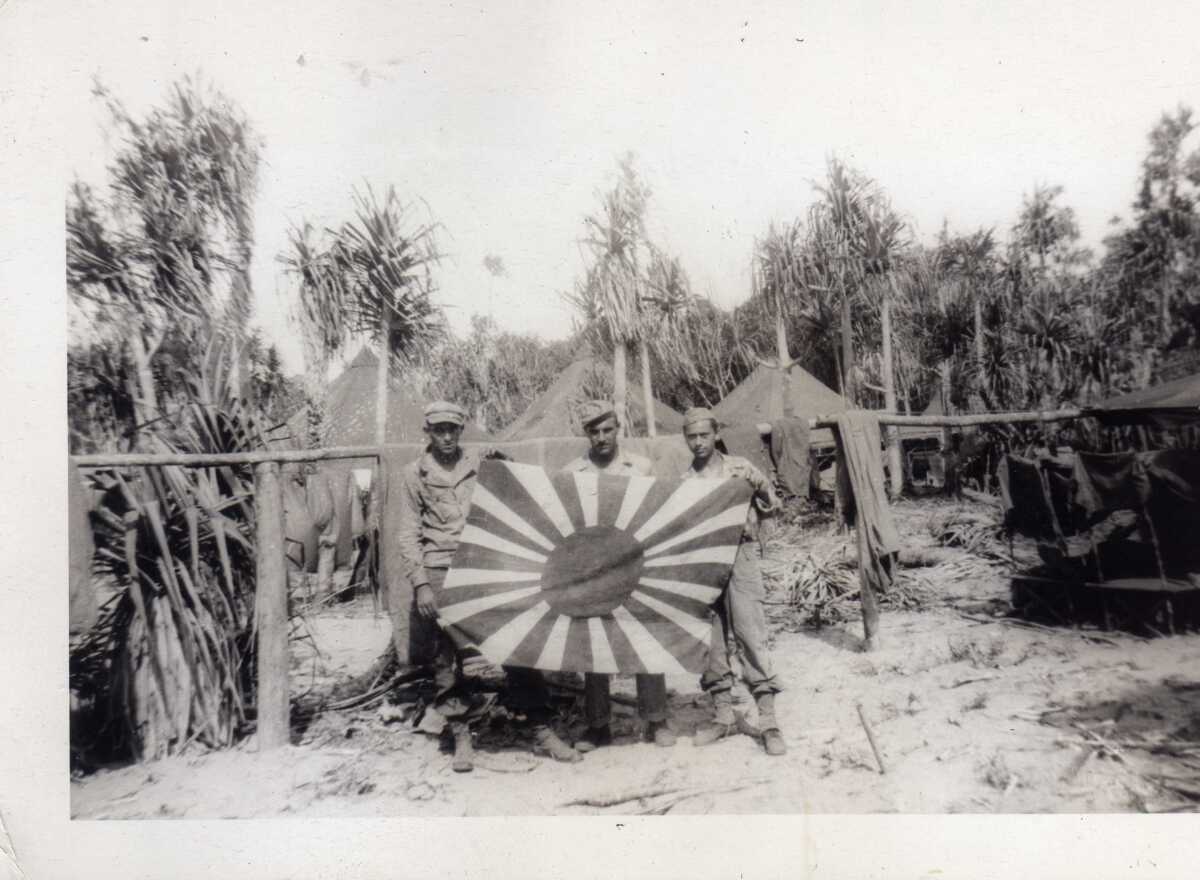Commentary: A quest for the Purple Heart

It was Memorial Day, May 31, 2021. My wife said “Let’s go see the flags.” Despite the fact that we had lived in Newport Beach for over 40 years, my wife, Carole, and I had never been to the flag display at Castaways Park. Due to the pandemic, except for very brief trips to the market we had hardly ventured out for over a year. We were vaccinated, and medical authorities said there was little risk of getting the virus when outdoors and socially distanced.
Castaways Park is a beautiful space overlooking Upper Newport Bay with a wonderful view of Newport Harbor with its homes, boats and islands.
The Exchange Club of Newport Beach had put up 1776 American flags. Many of them had photos and stories of U.S. servicemen. Most of the flags had been purchased by family members in remembrance of their sons, daughters, uncles and cousins that had served in the military. The display was overpowering.

When we got home that afternoon I thought of the only family member of mine that had been killed in action. His name was Ernest Racer. His story was tragic.
Ernest was born in Austria in 1925. His family was Jewish. He had seen his father killed and his mother beaten by the Nazis. Somehow Ernest escaped Europe and was able to get to the United States. His mother also got out of Austria and spent the war in London. Ernest had some cousins in the U.S. in Brooklyn. He stayed with them a brief time before enlisting in the U.S. Army at the age of 18.
I can only assume Ernest wanted to go fight the Nazis, but in its wisdom the Army sent him to fight in the Pacific.
I was only 10 when the family heard that Ernest had been killed. For some strange reason I always thought he had been killed shortly after the war was over. The story was that he was in a Signal corps unit in Luzon along with some Philippine soldiers and they were stringing up communications wire for Gen. MacArthur’s headquarters. The unit was attacked by Japanese soldiers who came out of the surrounding hills. I supposed many if not all in his unit were killed.
Many years later when doing some genealogic research I found that I had my dates wrong. Ernest had died on Feb. 5, 1945, and WWII officially ended Sept. 2, 1945.
When the war was over, his mother, Rosa, finally was able to come to the United States only to find out that her son had been killed in the war. She blamed the family for letting Ernest enlist and was heartbroken.
Ernest was originally buried in the Philippines, but the family wanted him home and a cousin went to the Philippines and arranged for Ernest to be buried in the family plot at the New Montefiore Cemetery in Pinelawn, Long Island.
The day after Memorial Day, my thoughts again turned to Ernest. I decided to try to find out his exact Army unit and when he was awarded the Purple Heart.

If he had been given the medal I had no idea who might have it. Despite an exhausting internet search, I could find no record that Ernest had ever gotten the award. There were many sites dedicated to Purple Heart awardees and none listed Ernest Racer. That seemed strange since being killed in action was definitely a criteria for issuance of the medal.
I started hunting for any Army office that might have more complete information and finally found what looked like a possibility — the Awards and Decorations Branch at Fort Knox. I was able to find an email address and promptly wrote a brief inquiry with Ernest’s serial number, birth and death dates. After I sent the message, I told Carole I was unlikely to ever hear back — or if I did it would be in a few months time. Amazingly, I received a reply 10 minutes later. The Army office said that since I was not a parent, sibling or grandson I would not be able to receive an actual medal set “at government cost.”
I immediately wrote back and said I did not want a medal, I just wanted to make sure that Ernest would be awarded one if he was entitled to it. I told them that I had also served in the U.S. Army as a captain in the 82nd Airborne Division, thinking it might lend some credence to my inquiry. The office again wrote back almost immediately and said it would open a formal case on the matter. I told my wife I might never hear back from them.
But only two weeks later, June 10, I received a letter from the Awards and Decorations branch. It said: “We have verified PFC Racer’s entitlement to the Purple Heart. It is an honor to verify the award in recognition of Private First Class Racer’s dedicated service and sacrifice to our Nation during a time of great need.”
Cousin Ernest got his Purple Heart. We will buy him a flag to fly at Castaways Park.
Lawrence D. Freedman, M.D. and his wife live in Newport Beach.
All the latest on Orange County from Orange County.
Get our free TimesOC newsletter.
You may occasionally receive promotional content from the Daily Pilot.



